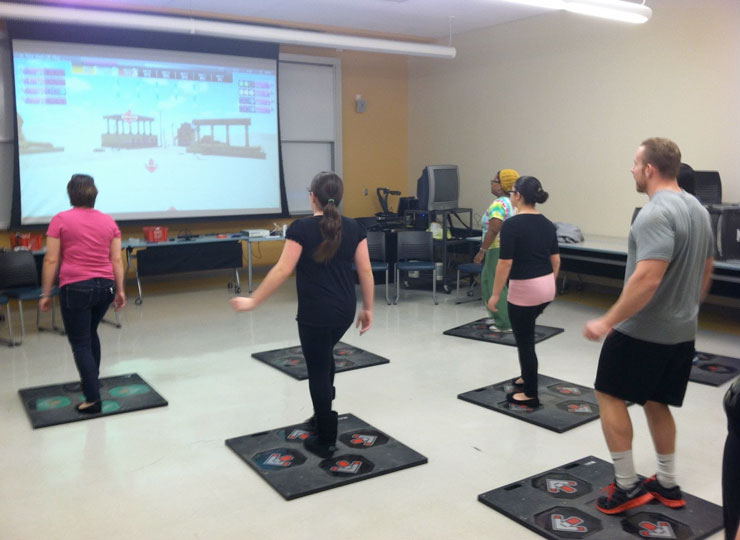
June 21, 2018
Regular exercise has been shown to reduce the risk for Alzheimer’s disease and other forms of dementia later in life. And playing mentally challenging games, including doing crossword puzzles, may have similar benefits, studies suggest.
Now a new study has found that combining the two — exercise and games, or what some call “exergames” — may provide an added boost for the brain.
The study, in the journal Frontiers in Aging Neuroscience, found that older men and women who had memory problems showed improvements in various complex thinking and memory skills when they combined exercise with mentally stimulating games. The combination “is one more thing that could be added to the arsenal of tools to fight back against this cruel disease,” said Cay Anderson Hanley, an associate professor of psychology at Union College in Schenectady, N.Y., and the study’s lead author.
For the study, the researchers enlisted older men and women with mild cognitive impairment, a type of brain malfunction that about half the time leads to full-blown Alzheimer’s disease. Their average age was 78.
Over the next six months, 14 of them completed the study. Half of them pedaled while navigating along a scenic virtual reality bike path for 30 to 60 minutes several times a week. The other half pedaled while playing a video game that included chasing dragons and collecting coins.
The special bikes were placed at a number of sites, including hospitals, community centers, YMCA’s and independent living centers.
The results were compared against data collected from a separate group of eight seniors who played video games on a laptop but did not pedal, and also an earlier research group who only rode a traditional stationary bike with no gaming component.
At the end of the six months, participants in both the group that pedaled along a virtual bike path and those that pedaled while chasing dragons and collecting coins performed significantly better in tests of executive function, including their ability to multi-task and make decisions, compared to those who didn’t engage in exercise with a mental challenge.
“Executive function is like the CEO of the brain. It is key to remaining independent in later life,” said Dr. Anderson-Hanley. “For example, it allows you to cook two things on the stove at once. It makes sure you don’t forget that you are boiling water while also having something in the oven.”
Benefits for both groups were also seen for verbal memory and physical function, suggesting it may be worth the effort for seniors to incorporate game challenges into a daily exercise regime.
Other studies have shown that the gaming component can be engaging and fun and provide added incentives to exercising. People with heart failure who engaged in “exergames,” for example, were more motivated to complete their exercise regimes.
This study was small; only 14 people out of more than 100 who initially enrolled completed the full six-month course. Larger studies are needed to confirm the results.
But “I hope this study shows that for those who are on the slippery cognitive decline, that this would encourage them to continue to stay active, both mentally and physically,” Dr. Anderson-Hanley said. “The results suggest that the best outcome for brain health may result when we do both: move it and use it.”
By ALZinfo.org, The Alzheimer’s Information Site. Reviewed by Marc Flajolet, Ph.D., Fisher Center for Alzheimer’s Research Foundation at The Rockefeller University.
Source: Cay Anderson-Hanley, Michole M. Barcelos. Earl A. Zimmerman, et al: The Aerobic and Cognitive Exercise Study (ACES) for Community-Dwelling Older Adults With or At-Risk for Mild Cognitive Impairment (MCI): Neuropsychological, Neurobiological and Neuroimaging Outcomes of a Randomized Clinical Trial. Frontiers in Aging Neuroscience, published online May 4, 2018











